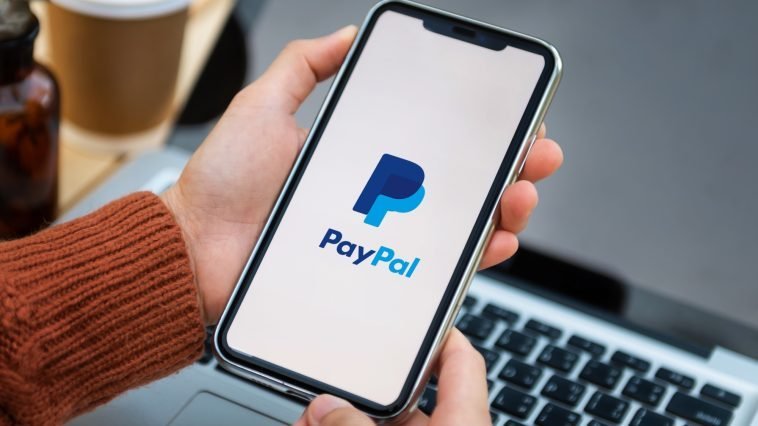Introduction.
Getting scammed as a seller on PayPal is a lot more common than you might think. If you’ve been running a business or doing any kind of selling online, you’re likely already aware of how popular PayPal is as a payment platform. It’s widely used, easy to set up, and has a reputation for being secure and reliable.
But while PayPal offers a lot of benefits, it’s not without risks—especially for sellers. Fraud and scams have become common as scammers get more sophisticated in targeting people who use this platform to sell goods or services.
For sellers, these scams can be financially devastating. Many involve tactics that exploit PayPal’s rules or weaknesses in how transactions are handled.
Scammers know how PayPal’s dispute system works and use it to their advantage. Imagine this: You sell an item, ship it out, and receive payment.
All seems well until you get a chargeback or a dispute. Suddenly, your funds are frozen, and you’re left trying to prove that you actually delivered the item or that it arrived as described.
Let’s go over how you can avoid falling into these traps and protect yourself from the most common scams targeting PayPal sellers.
This guide covers some effective strategies for identifying scams, practical tips on avoiding them, and how to make the most of PayPal’s security features.
Common Scams Targeting PayPal Sellers
There are quite a few ways scammers try to get money or products from sellers on PayPal. Some of the more common tactics include:
- Fake PayPal Emails: Scammers send emails that look like they’re from PayPal, claiming payment has been made. These emails often include links to fake websites that request your login info.
- Overpayment Scams: The buyer “accidentally” pays you more than the price and asks for a refund of the difference. But they cancel or reverse the payment after you’ve refunded them.
- Unauthorized Payments: A scammer might use a stolen PayPal account or credit card to buy from you. When the real owner notices, they file a dispute, and you lose the money.
- Item Not Received Disputes: A buyer claims they never received the item, even if you shipped it. If you didn’t use tracking or signature confirmation, proving otherwise can be difficult.
- Switch-and-Bait (SNAD): The buyer claims the item wasn’t as described (SNAD). They return something different, maybe a broken or cheaper version, and get their money back.
Why PayPal Scams Are a Big Deal for Sellers
Scams aren’t just an inconvenience—they can lead to serious financial losses and even affect the trust you have with your buyers. A single scam could mean losing not only the payment but also the item you shipped.
On top of that, if you’re hit with too many disputes, your PayPal account could be flagged or even limited, making it hard to continue doing business. Understanding how these scams work is crucial so that you can take steps to avoid them.
How Do I Protect Myself from PayPal Scams?
1. Only Ship to Verified Addresses
One simple rule is to always ship to the buyer’s verified address listed on PayPal. This adds a layer of protection in case a dispute is filed. If the address isn’t verified, there’s a higher chance of fraud.
2. Use Tracking and Require a Signature for Expensive Items
For high-value items, always use a trackable shipping service and require a signature upon delivery. If a buyer claims they didn’t receive the item, you’ll have proof from the tracking information. A signature is even better proof that they physically received it.
3. Don’t Fall for Overpayment Requests
If a buyer “accidentally” sends more money than required, this is often a red flag. PayPal discourages returning funds directly and suggests canceling the transaction instead. Scammers can use this to get a “refund” before you realize the payment was fraudulent.
4. Watch Out for Fake Emails or Messages Claiming to Be PayPal
Phishing scams are widespread. Fake emails may look just like real ones from PayPal. Avoid clicking on links in emails and instead log in directly through PayPal’s official site to check if a payment was made. Always double-check for any suspicious details in the email.
5. Document Everything
Keep records of your conversations with the buyer, the transaction details, and any proof of shipping and delivery. If a buyer files a dispute, having documentation ready can make a big difference in getting a favorable outcome.
6. Be Wary of New Accounts and Unusual Buyer Requests
If a buyer has a new account with no history or makes unusual requests (like shipping to a different address), take extra precautions. New accounts are often used by scammers who plan to close the account after getting what they want.
Pros and Cons of Selling with PayPal
Pros:
- Convenient and Quick: PayPal makes it easy for sellers to accept payments from buyers all over the world.
- Trusted by Customers: Many customers prefer PayPal, as they know their transactions are protected to some extent.
- Built-in Security: PayPal offers security measures like payment protection, though it’s more buyer-focused.
Cons:
- Buyer Bias: PayPal’s dispute system generally favors the buyer, which can make it challenging for sellers to win cases.
- Fees: PayPal fees can be high, especially for international transactions, cutting into your profit margin.
- Risk of Account Limitations: Too many disputes or flagged transactions can result in limitations on your account, freezing funds for up to 180 days.
FAQs
1. Can I prevent all scams by using PayPal’s security features?
Not entirely, but using these features can significantly reduce your risk. Features like shipping to verified addresses and requiring a signature add layers of protection.
2. What if a buyer files a dispute despite receiving the item?
If you used tracking and have proof of delivery, PayPal is more likely to side with you. Always provide any evidence you have to support your case.
3. Are there other payment options safer than PayPal for sellers?
Other options like Stripe or direct bank transfers may have different policies and fees but also come with their own risks. Choosing the right platform depends on your business type and volume.
4. Can I get my money back if I fall for a scam?
PayPal’s Seller Protection may help if you meet all their criteria, but it’s not a guarantee. The best approach is to stay vigilant and follow safe practices to avoid scams in the first place.
5. How do I recognize a fake PayPal email?
Look for signs like poor grammar, urgent language, or suspicious links. A real PayPal email will usually address you by your full name and won’t ask for sensitive info through email.
Conclusion
Scams can be a serious problem for sellers on PayPal, but by taking some precautions, you can reduce your risk and keep your business safe. It all comes down to awareness and careful handling of transactions. Using PayPal’s security features and being mindful of red flags can make a huge difference.
Have you encountered any PayPal scams as a seller? If so, how did you handle it?





GIPHY App Key not set. Please check settings